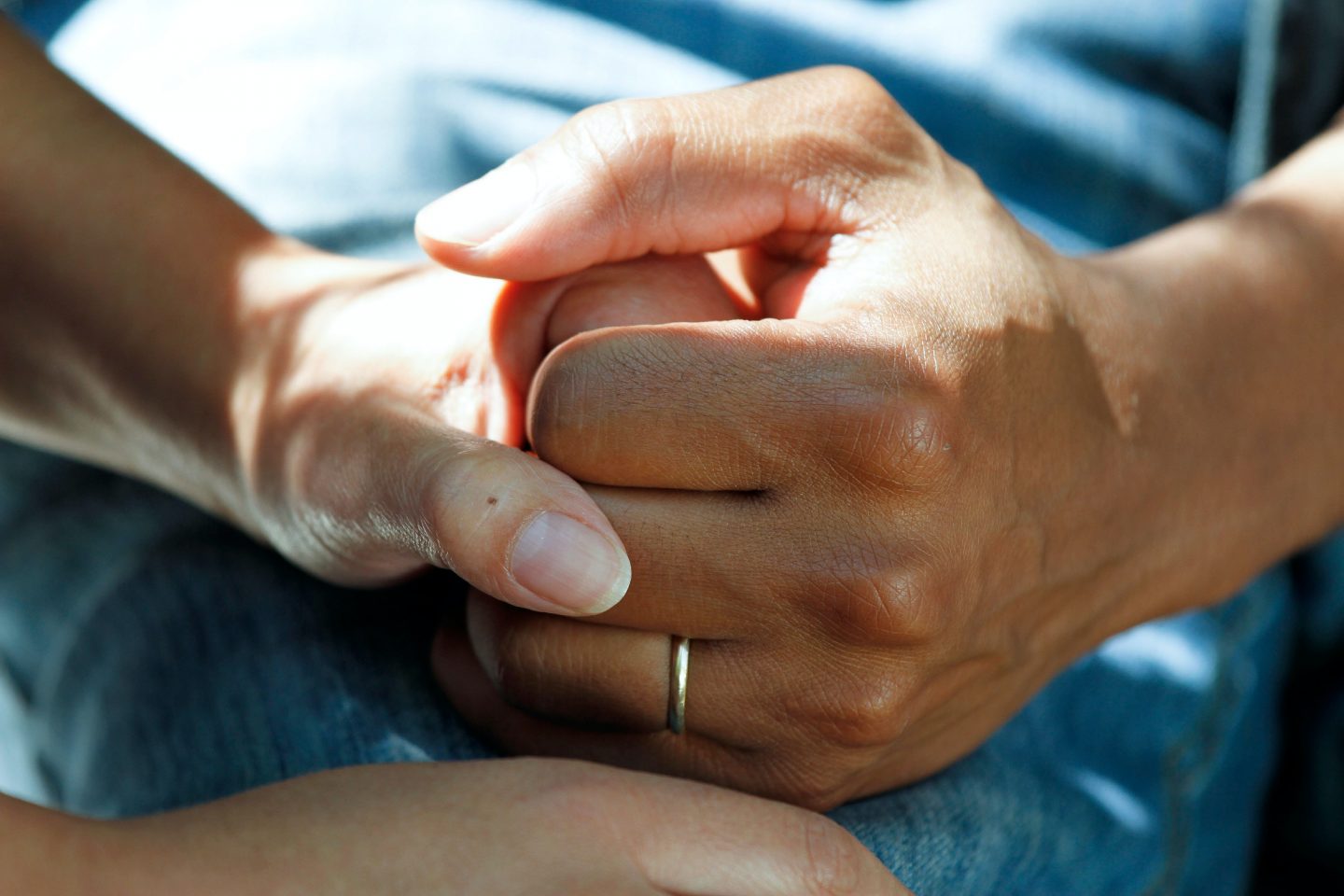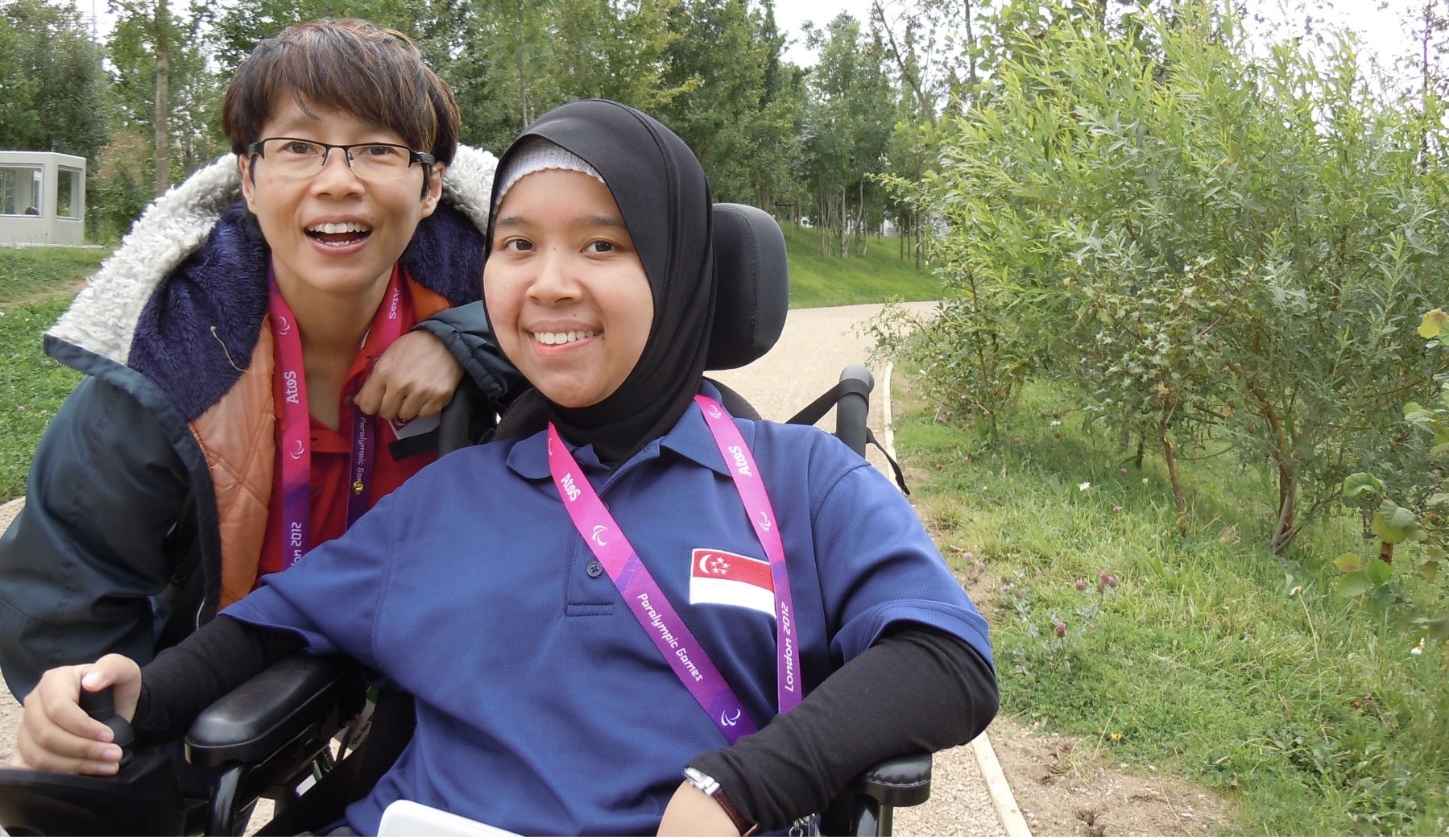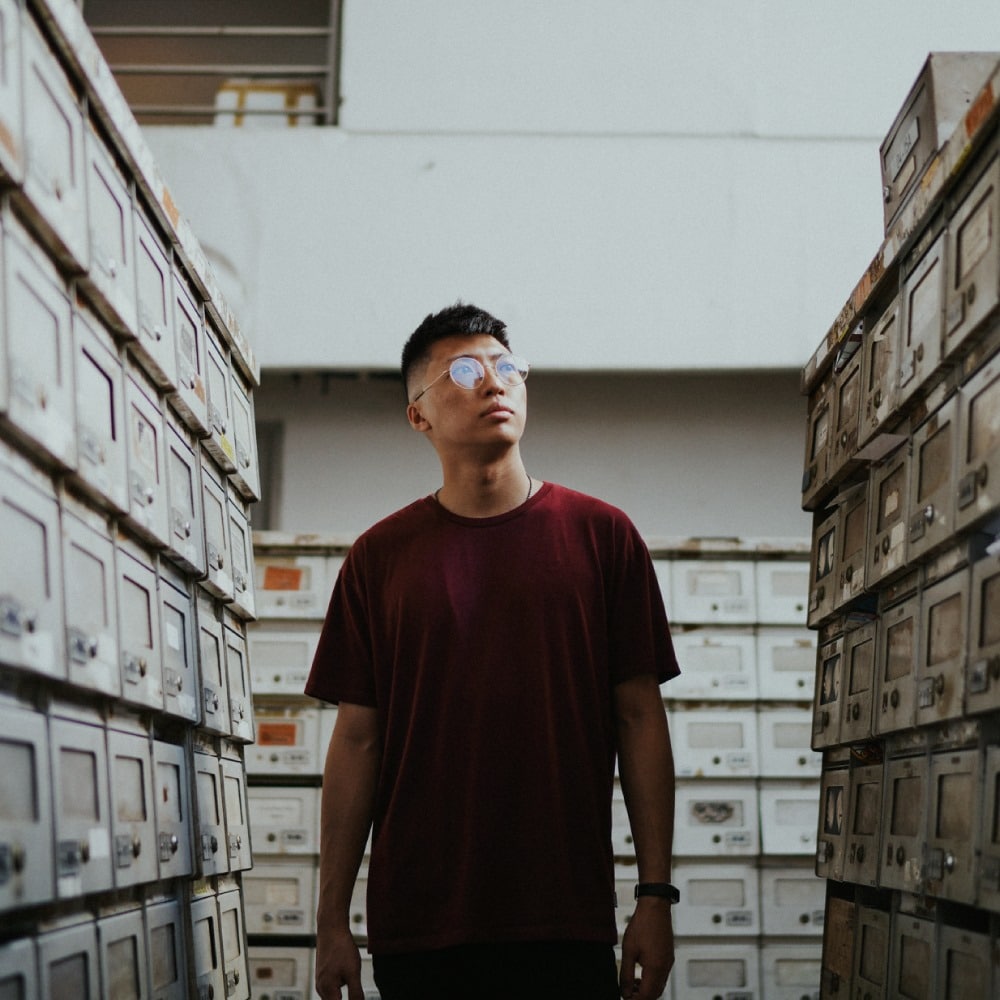Care for caregivers in the new normal of COVID-19
Christine Leow // June 23, 2020, 3:47 pm

When caregivers are stressed, it affects the quality of the care they are able to give. Caring for carers has become even more crucial as the coronavirus re-maps our lives. Photo by truthseeker08 from Pixabay.
When it became mandatory in West Bengal to wear a mask in public places, the frequent quarrels between an elderly retiree and his adult unemployed son intensified. The son, 48, refused to wear a mask. The father insisted. Enraged, the father strangled his son. The father had been supporting the son who was physically challenged since childhood.
In France, a family watched in fear as their 14-year-old son attacked the walls of their home with a pickaxe. The teenager who has autism had been frustrated by weeks of being confined at home because of the coronavirus lockdown.
These two examples illustrate the reality of caregiver stress magnified by the COVID-19 pandemic and measures to stem its spread.
Thankfully, there have been no news reports in Singapore of such horrific fallouts. But it does not mean that caregivers here are any less stressed.
A heavier burden
“Situation for female family caregivers has grown more dire during COVID-19, survey finds” – the title of a report released on June 8 – speaks volumes.
The survey was conducted by the Singapore Alliance for Women in Ageing (SAWA). It comprises four organisations: Association of Women for Action and Research (AWARE), Persatuan Pemudi Islam Singapura (PPIS), Singapore Council of Women’s Organisations (SCWO) and the Tsao Foundation.
The survey was based on interviews with 42 female family caregivers of the elderly in May. It reveals the heavier burden the pandemic has placed on them.
With elderly care services closed, the onus has been on caregivers to keep their charges engaged, along with seeing to their physiotherapy needs and ensuring that their medical needs are met. Caregivers had little respite during the recent Circuit Breaker, as relatives who often take over some care duties were unable to visit. Another source of stress? Attempting to work from home while handling their charge’s difficult behaviour.
More than half the respondents said that their employment had changed: They were working fewer hours or projects were put on hold. Many had seen a drop in income.
Household expenses for 3 in 4 respondents also rose with more family members requiring meals at home throughout the day, and an increase in electricity consumption. Multiple respondents, concerned about exposing their charges to the virus on public transportation, were opting for taxis instead.
“We must be well in order to give care to others.”
Other studies have shown that when caregivers are stressed, it affects the quality of the care they are able to give.
Caring for caregivers has become even more crucial with the added stress and strain on them as COVID-19 re-maps our lives.
Said Faith Wong, 38, a co-trainer at Caregivers Alliance Limited (CAL): “We must be well in order to give care to others.”
So, how can caregivers cope?
Caregivers of charges with a range of differing needs, and those who support them, share how they are managing in the new normal. Here are their tips.
#1 A new routine
For caregivers of children with special needs, the need to keep to a routine in the midst of drastic changes is one of the biggest challenges they face.
So, develop a new routine. Even if it may be tough-going at first, said mum Tammy Yuen, 44.
Her son Josiah, 12, lives by a set routine which has been hard to keep since the COVID-19 safety measures were put in place.
He has moderate autism and development delay. He communicates through gestures and grunts.
Changes which may be inconveniences for some – like not being able to go to school or for swims – are devastating for him.
“He would cry and tell me that he missed his teachers and his class,” said Yuen.
She prepped Josiah by taking him to his favourite mall to show him that all the shops were closed during the recent Circuit Breaker. “When he understands the situation, he becomes more adaptable and had fewer meltdowns,” she said.
Going to the park has become Josiah’s new routine.
“When I bring him to the park, he must go by this route, around this tree, throw one stone in the pond.
“Even then, changes – for example, rain – can be very distressing to him,” said Yuen.
Returning to some normalcy in Singapore’s reopening (aka Phase 2 which started on June 19) means readapting again.
#2 New forms of help
“A lot of caregivers feel they are the only ones who can take care of their loved ones. It’s a lie that no one can truly know your troubles,” said Pastor Debbie Tan, 43, who heads the children’s church at Church of Our Saviour (COOS).
“We can’t take over what you do, but we can journey with you. We can talk to you, pray with you, lend a hand.”
The children’s church also has a ministry for children and youth with special needs called SunShinekidz. Since churches closed physically, its weekly Saturday and Sunday sessions have migrated to Zoom. They also took their Creative Arts class for special needs youths online.
“We have adapted the lessons so there are more activities, craft sessions, visuals like cartoons to engage them,” said Ps Debbie.
Such sessions are for caregivers as much as they are for their charges.
“We can’t take over what you do but we can journey with you.”
For parents like Yuen, who are always always looking for meaningful ways to engage their children, sessions like these are a God-send. She says: “When someone else comes along who is able to organise such activities, we parents are always grateful.
“It means that for that one hour, I can just blank out, sit next to him and let him follow along, and know that someone else is helping my child.”
COOS also conducts training sessions via Zoom for parents. These included a seminar in early June on how to tell their teens with special needs about sex and sexuality.
Elsewhere, CAL has taken online its Caregivers-to-Caregivers Training Programme (C2C) those looking after people with mental health issues. The 12-week course is fully-funded.
Resources have gone digital, too.
Carers of people with Alzheimer’s can download a toolkit called Journey with the Arts & Dementia (JADe). These conversation starters – with suggested questions and photos of groups of items like old school games and heritage objects – are designed for them to start a dialogue with their loved ones with cognitive impairment or dementia. They were created by the The Alzheimer’s Disease Association.
Such resources are particularly welcome because so many of the usual places that offer help – care centres, enrichment classes, rehabilitation centres – remain shut because of COVID-19 safety measures.
Carers of the elderly may have to contend with virtual help for a while since seniors are still advised to remain at home due to their increased risk of infection.
#3 Remote support
Caregivers have a big need to connect with other carers or with people who are empathetic towards their situation, notices Wong from her volunteer work with people looking after those with mental health issues.
“Feeling alone is very scary,” she said.
With ongoing constraints on large group meetings, support groups may not be able to meet for a while. Church services may not resume either, with the number of congregrants capped at 50 at a time. But listening ears are still available.
“It helps to know that someone else has gone through the same thing.”
COOS’ team of volunteers uses chat groups to maintain a connection with parents of children and youth with special needs. Parents can text their prayer requests or share their stories to encourage each other. They are also guided on where to get help or financial support.
“There are always people they can go to. It is important that they know they are not alone,” said Ps Debbie.
People caring for those with mental health issues who have attended CAL’s classes get moral, mental and emotional support through similar channels like WhatsApp groups, SMSes, phone calls or emails.
Facebook page Caregivers of Elderly Parents Singapore provides similar support to people like Doris* (not her real name), 57. She has been caring for her 85-year-old mother who is paralysed on one side because of a stroke a year ago.
“Sometimes when I read it, and when I need advice, it helps to know that someone else has gone through the same thing,” she said.
#4 Advocate for your charge
Measures put in place to curb COVID-19 meant that many regular medical appointments were postponed. This may be fine for some people. But for others, the check-ups are critical.
David Lang, 62, has two children aged 27 and 21 who suffer from a rare and fatal genetic disorder called Niemann-Pick Disease Type C.
The disease causes their intellectual and physical faculties to weaken. There is no cure for their condition. Lang’s middle child passed away from the disease at age 11.
His daughter, for example, requires medication that may affect liver or kidney function. Regular blood tests are necessary to ensure her organs are working well.
“When they postpone my children’s medical appointments, I had to insist: ‘No’. There is some leeway if you dare to ask and dare to explain,” he said.
Advocating for her child is also how Yuen copes. She finds it difficult to keep the face mask on her son when they are in the park. “He takes it off because it’s hot .” He also finds the masks uncomfortable because he has trouble closing his mouth and drools non-stop.
“When they postpone the children’s medical appointments, I had to insist: ‘No’.”
Yuen has had to explain the situation to social distancing officers who approach them. “Thankfully, they let us go.”
Things are slightly easier in this department for carers of people with dementia. The Alzheimer’s Disease Association (ADA) is able to provide people with dementia and their carers with a letter explaining how the former may lack the ability to understand and comply with COVID-19 safety measures. The memo gives their and their carers’ details.
They can show this to enforcement officers or the police if stopped for inadvertently violating measures such as safe distancing or wearing a mask.
This is helpful as the condition is not always apparent.
While it doesn’t provide immunity to penalties that may be assessed as necessary, the letter provides some peace of mind to caregivers.
#5 Me time
“Never neglect self-care,” Wong reminds carers.
Even with Phase 2 underway, it is important to continue to carve out me time, which carers had less of during the Circuit Breaker.
“I deliberately put it into my timetable to do something for myself. Even if it is just to go downstairs to take a deep breath, it’s better than nothing.”
The Langs make sure they unwind by watching television.
This may seem simple, but considering the amount of care their children need, even this little slice of normalcy is hard-fought.
Both the Lang children are bedridden, and require feeding tubes and a ventilator. They need constant care, even at night. Husband and wife take turns to wake up to clear their children’s breathing tubes. So that their two domestic helpers who care for the children during the day can have enough rest.
Ps Debbie often tells carers: “It is okay to leave some housework till tomorrow. Don’t be too hard on yourself.”
She also offers some suggestions: “Spend some time listening to your favourite Christian songs or an audio sermon.”
#6 Get to God
Pastor Debbie, who has ministered to many families with children with special needs, believes it is important to not just cry for help but to simply cry.
“I anchor my hope in God that though this earthly tent is wasting away, we have an eternal one that will not fade.”
“When things get tough, it is okay to ask for prayers. Everyone goes through difficult moments so you are not alone.
“It is okay to cry. Remember, God is always there with us. He hears our cries.”
Crying to God is exactly what Doris does.
When things get frustrating, when her once independent mother gets moody because she can no longer do the things she loves like sewing and drawing, Doris prays and journals.
“I put down my thoughts and feelings and it helps me to process them and put them into perspective.
“I anchor my hope in God that though this earthly tent is wasting away, we have an eternal one that will not fade,” she said.
“Disabled does not mean unable”: 10 persons with special needs ascend Mount Fuji
Three children with fatal genetic disorder, yet David Lang sees God’s sovereignty
Who cares for the caregivers? 70-year-old Auntie Audrey does
WHERE TO GET HELP
Elderly
- Agency for Integrated Care
Tel: 1800 650 6060
Click here for more info
- Alzheimer’s Disease Association
Tel: 6377 0700 (Mon – Fri, 9am – 6pm)
Click here for more info
- SAGE Counselling Centre
Tel: 1800 555 5555 (Mon – Fri, 9am – 7pm; Sat, 9am – 1pm)
Click here for more info
- TOUCH Care Line
Tel: 6804 6555 (Mon – Sat, 9am – 9pm)
Click here for more info
Mental Health
- Caregivers Alliance Limited
Tel: 9720 7590 & 9770 7996 (West Cluster)
Tel: 9729 8628 & 9826 7115 (Central Cluster)
Tel: 9736 9170 (East Cluster)
(Mon – Fri, 9am – 6pm)
Click here for more info
- Caregivers Association of Mentally Ill
Tel: 6782 9371 (Mon – Fri, 8.30am – 5.30pm)
Click here for more info
Children with special needs
The Enabling Guide website provides a list of support groups and resources, also for caregivers of those who are ill.
The Khoo Teck Puat – National University Children Medical Institute (KTP-NUCMI) website provides COVID-19 resources.
General
- Care Corner Counselling (for Mandarin counselling)
Tel: 1800 353 5800 (Mon – Sun, 10am – 10pm)
Click here for more info
We are an independent, non-profit organisation that relies on the generosity of our readers, such as yourself, to continue serving the kingdom. Every dollar donated goes directly back into our editorial coverage.
Would you consider partnering with us in our kingdom work by supporting us financially, either as a one-off donation, or a recurring pledge?
Support Salt&Light



